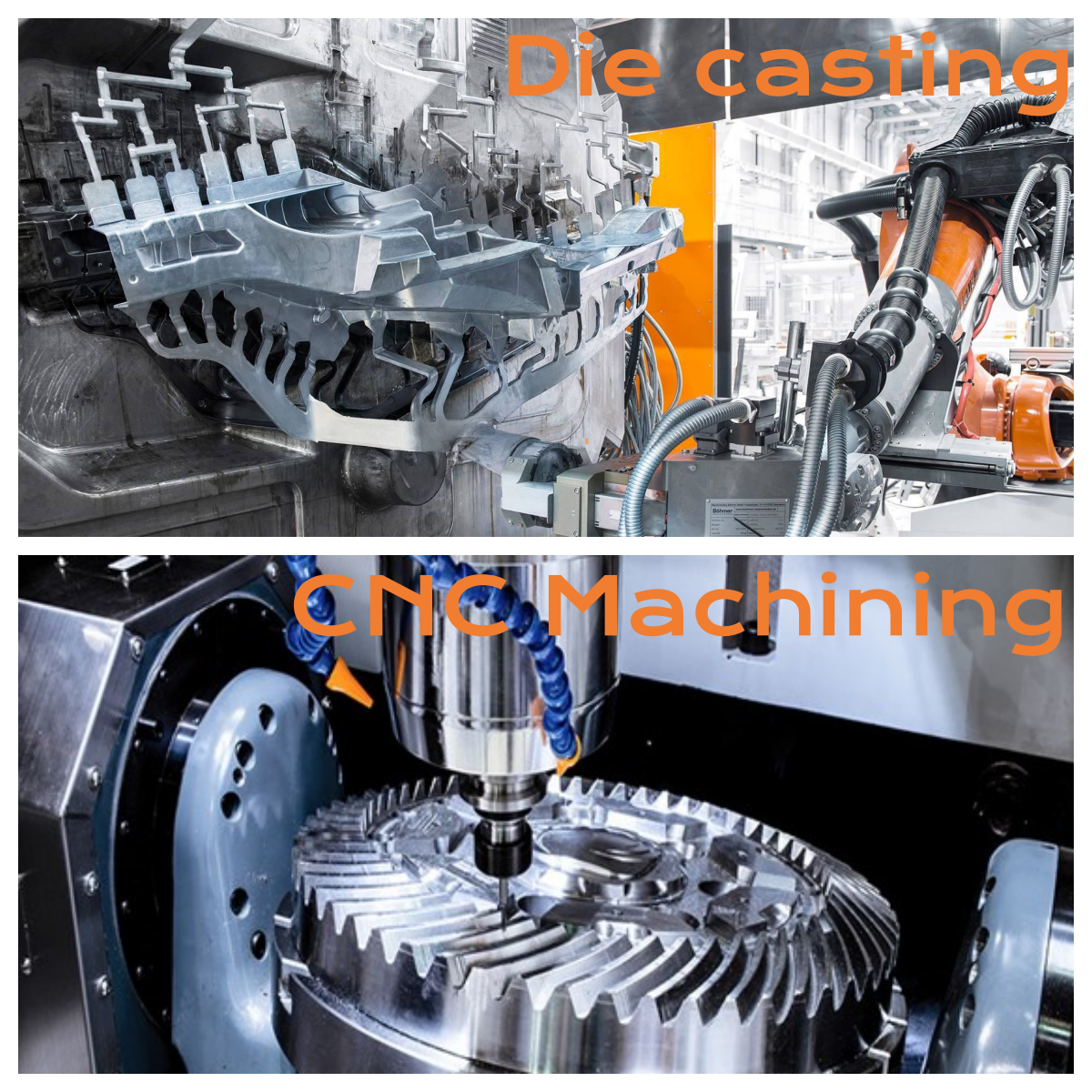Why is CNC Machining Stronger than Casting?
CNC (Computer Numerical Control) machining and casting are two distinct manufacturing processes, each with its own advantages and characteristics. CNC machining is generally considered stronger than casting for several reasons:
1. Material Integrity
CNC Machining: CNC machining involves cutting or shaping a solid block of material (often metal or plastic) to create the desired part. The material used in CNC machining, such as a solid billet of aluminum or steel, typically has a uniform grain structure and is free of internal defects like voids, air pockets, or impurities. This results in parts with higher strength and integrity.
Casting: In casting, molten metal is poured into a mold and allowed to solidify into the desired shape. During the cooling process, the material can develop internal stresses, shrinkage, or porosity, which can weaken the final part. Additionally, the grain structure in cast parts is often less uniform and may have inclusions or impurities, potentially reducing the overall strength of the part.
2. Precision and Tolerances
CNC Machining: CNC machining can achieve very high levels of precision and tight tolerances, ensuring that parts are made to exact specifications. This precision contributes to better mechanical properties and consistency across parts, enhancing their strength.
Casting: While casting can produce complex shapes, it generally cannot achieve the same level of precision as CNC machining. Variations in mold design, cooling rates, and material flow can lead to inconsistencies, potentially resulting in weaker areas within the part.
3. Material Choices
CNC Machining: CNC machining can be used with a wide range of high-strength materials, including aerospace-grade alloys, hardened steels, and other materials that might be difficult or impossible to cast.
Casting: Some high-strength materials, particularly those with high melting points or that are difficult to work with in molten form, may not be suitable for casting. This limits the range of materials that can be used in cast parts, potentially resulting in lower strength compared to machined parts.
4. Residual Stresses
CNC Machining: Machined parts generally have lower residual stresses because the material is removed through a controlled process. The absence of cooling and solidification-related stresses means the final part is typically more stable and less prone to warping or deformation.
Casting: The cooling and solidification process in casting can introduce residual stresses within the part, which may reduce its strength and dimensional stability.
5. Grain Structure Control
CNC Machining: Since CNC parts are cut from pre-formed billets or bars, the grain structure of the material can be more uniform and continuous, enhancing the strength and durability of the part.
Casting: The grain structure in cast parts is often less controlled and can vary depending on the cooling rate and mold design. This can lead to weak points in the final product.
Conclusion
CNC machining is often stronger than casting due to its ability to maintain material integrity, achieve high precision, use a wider range of materials, reduce residual stresses, and control grain structure more effectively. However, it's important to note that the choice between CNC machining and casting depends on various factors, including the design requirements, material properties, production volume, and cost considerations.
Dongrun Casting has 20000 square meters of facility houses and 200 production & test equipment, From quotation and tooling design to casting and finished machining, we can work with you at every stage. We serve a wide range of industries-from Fortune 500 corporations to small and midsize OEMs. Our products include Automotive&trucking, Electric Utility & Communications, Metering Systems, the Hydraulic Industry, Medical Devices, Lighting, Fuel and Gas Pressure, and Furniture parts.
More Details: www.dongruncasting.com
